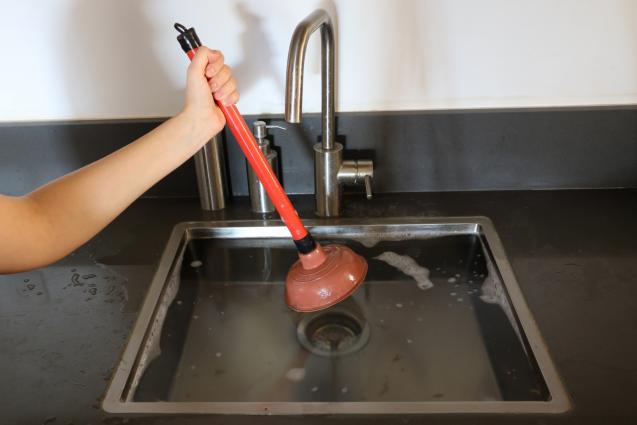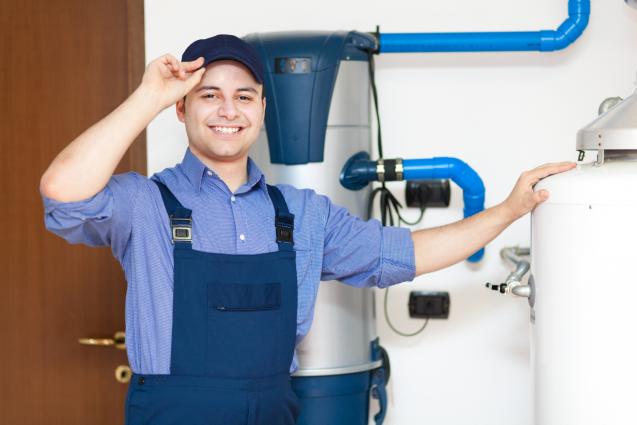
Proper Ways to Dispose of Your Old Hot Water System in Australia
By Fluid Plumbing|September 20, 2024
Disposing of an old hot water system is more significant than one might initially think. Improper disposal can lead to severe environmental damage, while adhering to the legal requirements and guidelines established in Australia ensures a responsible transition from old to new systems. This article explores the importance of correct disposal methods, the impact on the environment, and various responsible options available for discarding your old hot water system.
Understanding Why Proper Disposal is Crucial
Incorrect disposal of hot water systems can pose various environmental hazards. When these units are inadequately discarded, harmful substances such as chemicals and metals can leach into the soil and water systems, potentially causing long-term environmental damage. Additionally, improper disposal can lead to substantial fines and legal repercussions. Australian regulations are stringent when it comes to the disposal of household goods, ensuring public safety and environmental preservation.
Beyond legal concerns, improper disposal can also negatively impact community health and safety. Old hot water systems and their components can harbor dangerous materials that, if mishandled, can pose threats to both people and wildlife. Furthermore, embracing sustainable disposal practices aids in long-term environmental conservation, as many parts of a hot water system are recyclable. By recycling, one can contribute to reducing the demand for new materials, thus supporting a circular economy.
Recycle Your Hot Water System
Recycling is one of the most environmentally-friendly disposal options available. Many parts of a hot water system, such as the metal tanks, heating elements, and certain electronic components, can be recycled. First, it's essential to identify which parts of the unit are recyclable. This typically involves dismantling the system and segregating materials.
To begin the recycling process, contact your local recycling facility to understand their specific requirements and services. They will guide you on how to prepare your hot water system for recycling. Generally, this involves draining any remaining water, dismantling the system if necessary, and transporting the parts to the facility. Recycling not only helps reduce landfill waste but also allows materials to be reprocessed and reused, conserving natural resources.
Utilizing Council Collection Services
Many local councils in Australia offer collection services for large household items, including hot water systems. These services are regulated and provide a convenient option for residents. Checking with your local council is the first step to understanding the regulations and services they offer. Most councils have specific guidelines on preparing your hot water system for collection, ensuring it is safe and manageable for their workers.
Scheduling a council pickup is usually a straightforward process. This may involve booking a collection date online or via phone. Before collection day, ensure that your hot water system is thoroughly drained and safely placed at the designated pickup location. Following council-provided guidelines will streamline the process and ensure compliance with local regulations.
Engaging Professional Disposal Services
For those seeking a hassle-free option, hiring professional disposal services can be highly beneficial. Certified disposal service providers are experienced in handling such tasks, ensuring that your hot water system is disposed of in an environmentally-friendly and legal manner. When selecting a service provider, check their certifications and reviews to ensure they are reputable.
The cost of professional disposal services can vary, so it's prudent to obtain quotes from several providers. However, the convenience and safety provided by these services often justify the expense. Professional services typically handle all aspects of disposal, from dismantling to transportation, thereby reducing the risk of injury or incorrect disposal.
Donating or Repurposing Your Hot Water System
Under certain conditions, donating your old hot water system can be a viable option. Some community organisations, charitable groups, or individuals in need may accept used systems, provided they are in good working condition. It's essential to contact these organisations in advance to confirm their acceptance criteria and to arrange for drop-off or collection.
Repurposing is another creative disposal method. Parts of your hot water system can be transformed for other uses. For instance, metal tanks can be converted into storage containers or planters, while heating elements might be repurposed for DIY projects. Donating or repurposing not only supports community welfare but also reduces waste and promotes sustainability.
Avoiding Common Disposal Mistakes
Many pitfalls can arise during the disposal process, but they can be avoided with proper knowledge. One common mistake is neglecting hazardous waste regulations, which can lead to serious legal consequences. Additionally, it's crucial to ensure that your hot water system is completely drained before any disposal attempt. Leftover water can cause leaks and potential overflow issues during transportation.
Safe transportation is another critical aspect. Securing the hot water system properly in your vehicle and taking precautions to prevent spills or damage will ensure a smooth journey to the disposal site. By understanding and following these guidelines, you can avoid common mistakes and ensure a seamless disposal process.
Conclusion
Properly disposing of your old hot water system is not only a legal requirement but also a moral responsibility to protect the environment and community. From recycling and using council services to professional disposal and donating, there are several eco-friendly options to consider. Each method has distinct benefits and helps in conserving resources while reducing environmental impact. Understanding hot water system prices before disposal might also influence your decision, ensuring that the chosen method aligns with your budget and values. By choosing responsible disposal methods, you contribute positively to the community and the planet. For more information or to explore additional resources, local council websites and recycling centres offer valuable guidance.
Understanding Why Proper Disposal is Crucial
Incorrect disposal of hot water systems can pose various environmental hazards. When these units are inadequately discarded, harmful substances such as chemicals and metals can leach into the soil and water systems, potentially causing long-term environmental damage. Additionally, improper disposal can lead to substantial fines and legal repercussions. Australian regulations are stringent when it comes to the disposal of household goods, ensuring public safety and environmental preservation.
Beyond legal concerns, improper disposal can also negatively impact community health and safety. Old hot water systems and their components can harbor dangerous materials that, if mishandled, can pose threats to both people and wildlife. Furthermore, embracing sustainable disposal practices aids in long-term environmental conservation, as many parts of a hot water system are recyclable. By recycling, one can contribute to reducing the demand for new materials, thus supporting a circular economy.
Recycle Your Hot Water System
Recycling is one of the most environmentally-friendly disposal options available. Many parts of a hot water system, such as the metal tanks, heating elements, and certain electronic components, can be recycled. First, it's essential to identify which parts of the unit are recyclable. This typically involves dismantling the system and segregating materials.
To begin the recycling process, contact your local recycling facility to understand their specific requirements and services. They will guide you on how to prepare your hot water system for recycling. Generally, this involves draining any remaining water, dismantling the system if necessary, and transporting the parts to the facility. Recycling not only helps reduce landfill waste but also allows materials to be reprocessed and reused, conserving natural resources.
Utilizing Council Collection Services
Many local councils in Australia offer collection services for large household items, including hot water systems. These services are regulated and provide a convenient option for residents. Checking with your local council is the first step to understanding the regulations and services they offer. Most councils have specific guidelines on preparing your hot water system for collection, ensuring it is safe and manageable for their workers.
Scheduling a council pickup is usually a straightforward process. This may involve booking a collection date online or via phone. Before collection day, ensure that your hot water system is thoroughly drained and safely placed at the designated pickup location. Following council-provided guidelines will streamline the process and ensure compliance with local regulations.
Engaging Professional Disposal Services
For those seeking a hassle-free option, hiring professional disposal services can be highly beneficial. Certified disposal service providers are experienced in handling such tasks, ensuring that your hot water system is disposed of in an environmentally-friendly and legal manner. When selecting a service provider, check their certifications and reviews to ensure they are reputable.
The cost of professional disposal services can vary, so it's prudent to obtain quotes from several providers. However, the convenience and safety provided by these services often justify the expense. Professional services typically handle all aspects of disposal, from dismantling to transportation, thereby reducing the risk of injury or incorrect disposal.
Donating or Repurposing Your Hot Water System
Under certain conditions, donating your old hot water system can be a viable option. Some community organisations, charitable groups, or individuals in need may accept used systems, provided they are in good working condition. It's essential to contact these organisations in advance to confirm their acceptance criteria and to arrange for drop-off or collection.
Repurposing is another creative disposal method. Parts of your hot water system can be transformed for other uses. For instance, metal tanks can be converted into storage containers or planters, while heating elements might be repurposed for DIY projects. Donating or repurposing not only supports community welfare but also reduces waste and promotes sustainability.
Avoiding Common Disposal Mistakes
Many pitfalls can arise during the disposal process, but they can be avoided with proper knowledge. One common mistake is neglecting hazardous waste regulations, which can lead to serious legal consequences. Additionally, it's crucial to ensure that your hot water system is completely drained before any disposal attempt. Leftover water can cause leaks and potential overflow issues during transportation.
Safe transportation is another critical aspect. Securing the hot water system properly in your vehicle and taking precautions to prevent spills or damage will ensure a smooth journey to the disposal site. By understanding and following these guidelines, you can avoid common mistakes and ensure a seamless disposal process.
Conclusion
Properly disposing of your old hot water system is not only a legal requirement but also a moral responsibility to protect the environment and community. From recycling and using council services to professional disposal and donating, there are several eco-friendly options to consider. Each method has distinct benefits and helps in conserving resources while reducing environmental impact. Understanding hot water system prices before disposal might also influence your decision, ensuring that the chosen method aligns with your budget and values. By choosing responsible disposal methods, you contribute positively to the community and the planet. For more information or to explore additional resources, local council websites and recycling centres offer valuable guidance.



